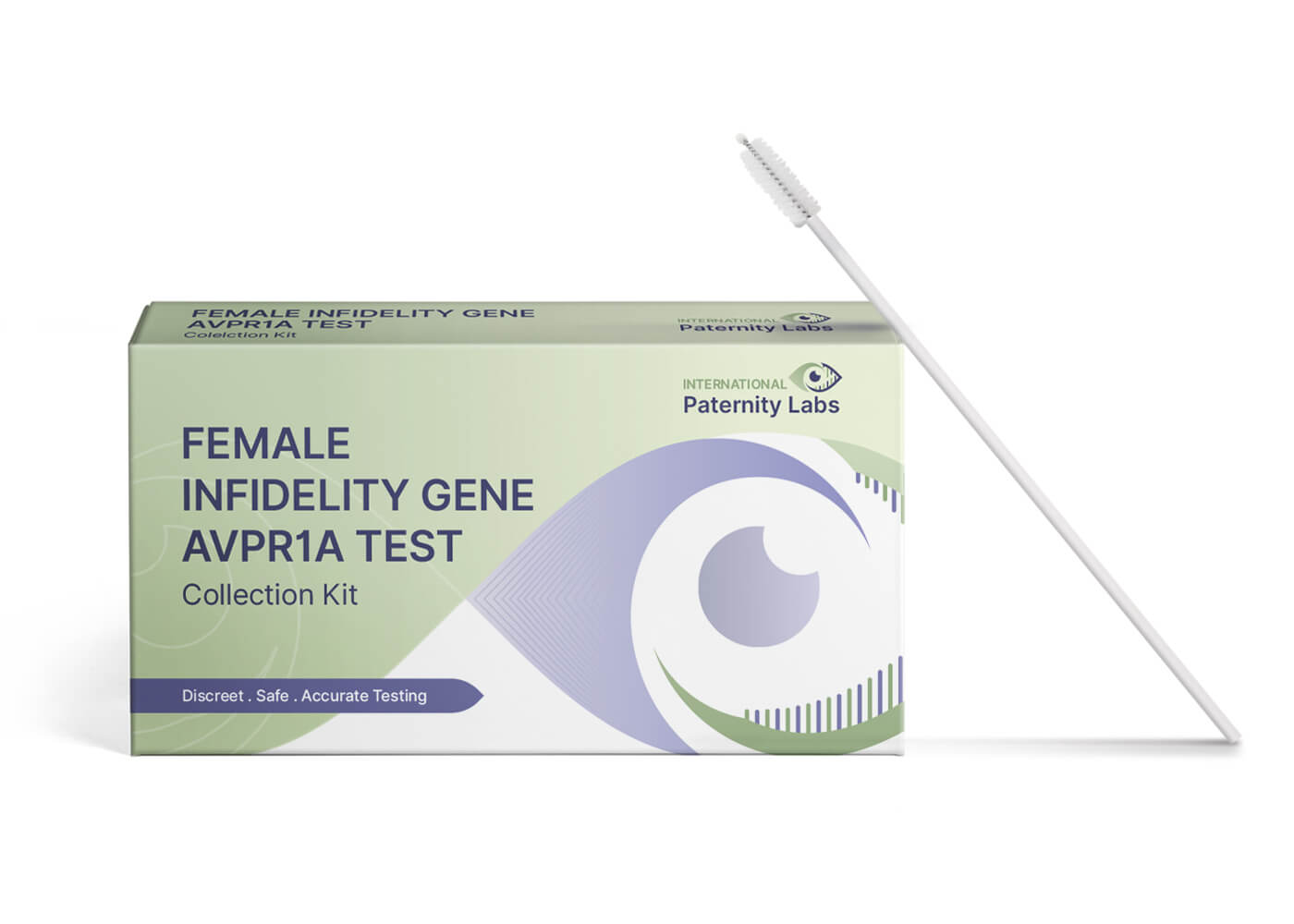Female Infidelity Gene AVPR1A Test
Find out if you carry a genetic variant associated with heightened sexual promiscuity through a genetic test.
- Simple buccal swab sample collection
- Discreet, Safe and Accurate
- Includes all laboratory fees
$149.00
DNA Tests

Order Your Confidential Home DNA Test Online!
About this test
Description
The term “female infidelity” gene refers to five specific genetic variants of the AVPR1A gene. This gene encodes the arginine vasopressin receptor 1A, responsible for binding vasopressin and transmitting signals into cells.
Vasopressin, a hormone or “chemical messenger,” typically influences water retention in the kidneys and elevates blood pressure when released into the bloodstream. However, when vasopressin is directly released into the brain, it can impact social and sexual behavior, including infidelity.
In women with the “female infidelity” versions of AVPR1A, the transmission of the vasopressin signal is disrupted. Each variant is associated with an increased likelihood of extrapair mating or cheating in women.
It’s worth noting that there is no evidence that these five variants influence sexual behavior in men. However, a different AVPR1A variation, known as the RS3 334 allele, is associated with an increased likelihood of infidelity in men, and this allele is detected in the Male Pair-Bonding Gene AVPR1A Test.
Technical Specifications
The AVPR1A gene is situated on chromosome 12, and individuals inherit two copies of this gene—one from each parent. A straightforward DNA test can reveal the specific forms of AVPR1A that a person has inherited.
The genetic variants tested include the minor alleles (less common alleles) at the following five markers in AVPR1A, all of which are linked to infidelity in women:
- rs10877970
- rs10877969
- rs3021529
- rs11174811
- rs1587097
100% Confidentiality
As our client, your privacy is extremely important to us, and we hold all information provided us in strict confidentiality. We will never sell, resell or make available your personal, or financial information to other companies or organizations. You will only be contacted using the method you choose, to confirm your order or to discuss your case. All communication is in the strictest confidence, and for that reason, we require you to create a password that will restrict access to your case. In addition, our privacy policies that have been established in our laboratory and offices safeguard the security of your case.




